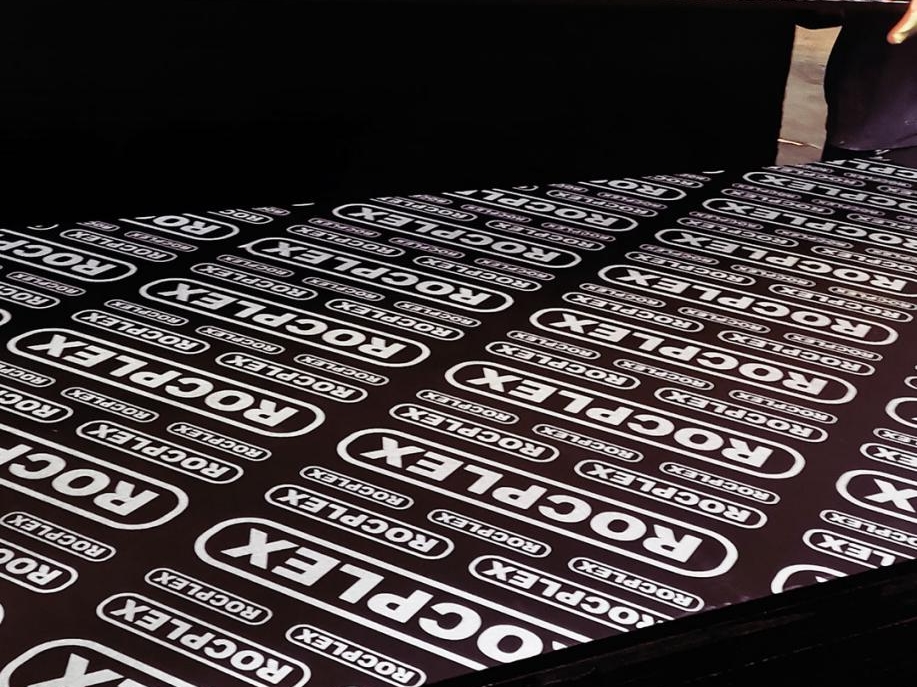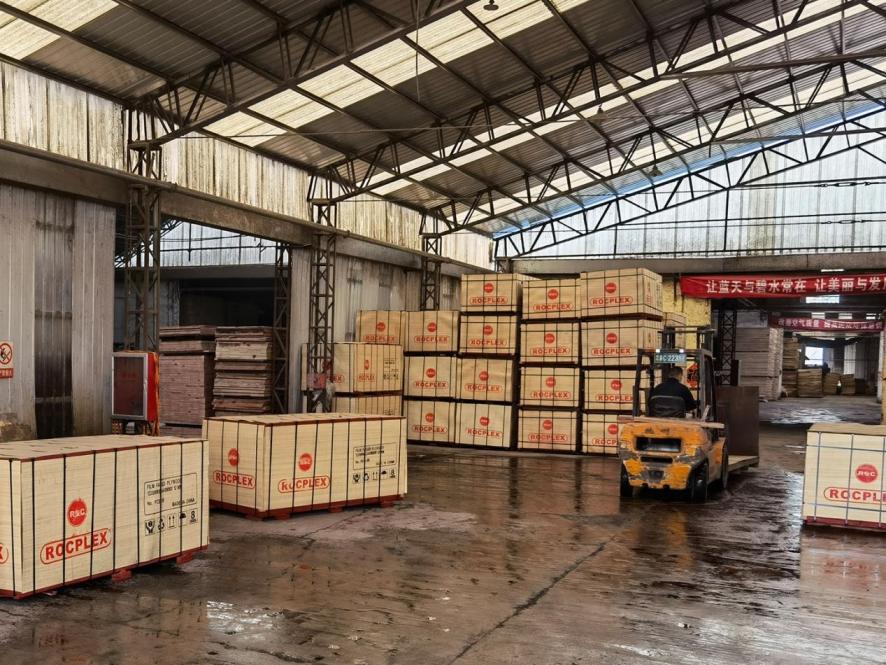Construction plywood, a versatile building material, plays a vital role in modern construction projects. From residential homes to commercial structures, plywood serves as a fundamental component in providing strength, stability, and aesthetic appeal. As the construction industry continues to evolve, the demand for high-quality plywood rises, accompanied by the need to address industry challenges.
ROC recognizes that no two construction projects are alike. As a result, the company offers a wide array of construction plywood options, each tailored to specific applications. Whether it’s a residential renovation, commercial complex, or industrial facility, ROC’s diverse product range ensures that the right plywood is readily available to meet the unique requirements of any project.
This blog explores the critical needs, challenges, and success cases of the construction plywood industry and how manufacturers like ROC are stepping up to provide innovative solutions.
What’s Construction Plywood: The Backbone of Buildings
Construction plywood is a remarkable material, revered for its versatility and wide range of applications. It serves as the backbone of modern buildings, providing structural integrity, stability, and support. From residential homes to towering skyscrapers, this engineered wood product plays a pivotal role in ensuring the longevity and resilience of structures.
This type of plywood possesses remarkable properties that make it an ideal choice for construction projects. Its exceptional strength-to-weight ratio ensures that structures remain stable without unnecessary bulk. Moreover, construction plywood’s resistance to moisture, decay, and warping makes it suitable for both interior and exterior applications, while its ease of installation significantly expedites the construction process.
Industry Needs: Strength, Sustainability, and Customization
In the world of construction, plywood is sought after for its inherent strength and durability. Builders and architects demand plywood that can withstand the rigors of various environmental conditions while maintaining structural integrity. Additionally, the growing emphasis on sustainable construction practices has led to an increased demand for plywood with eco-friendly certifications, encouraging manufacturers to adopt more sustainable production methods.
Customization is another aspect that the industry seeks. Construction projects vary greatly in scale and requirements, necessitating plywood that can be tailored to specific needs. Whether it’s thickness, size, or specialized treatments, the ability to customize plywood is crucial to accommodating diverse project demands.

Challenges Faced by the Industry
Despite its importance, the construction plywood industry grapples with several challenges. One of the primary concerns is the quality and consistency of plywood. Variations in material quality and performance can lead to construction delays, structural issues, and compromised safety. This underscores the need for manufacturers to adopt stringent quality control measures to ensure every sheet of plywood meets industry standards.
Sustainability presents another hurdle. The construction industry’s environmental footprint is a growing concern, prompting calls for more sustainable building materials. Plywood production often involves the use of timber, raising concerns about deforestation and its impact on biodiversity. Manufacturers must find ways to source wood responsibly and explore alternative materials that don’t compromise quality while minimizing environmental impact.
Revolutionizing Construction: The Success Cases of ROC Construction Plywood
1. Architectural Marvels Built to Last: Skyscrapers Reaching New Heights
In the realm of architectural marvels, ROC construction plywood has played a pivotal role in constructing towering skyscrapers. The material’s exceptional strength-to-weight ratio makes it an ideal choice for the structural components of these tall structures. From providing stability to ensuring durability against external forces, ROC plywood has contributed to the creation of skyscrapers that stand tall as tributes to engineering excellence.
2. Residential Oasis: Sustainable Housing: Innovative Residential Construction
Sustainability is no longer an option but a necessity in construction. ROC’s commitment to eco-friendly practices is evident in the success of residential projects that prioritize energy efficiency and reduced environmental impact. ROC construction plywood’s insulation properties have been harnessed in the construction of energy-efficient homes, ensuring comfortable living spaces while minimizing energy consumption.
3. Urban Infrastructure Transformation: Transportation Infrastructure Redefined
The success story of ROC construction plywood extends to urban infrastructure projects as well. From bridges to tunnels, ROC plywood has been a crucial component in building robust structures that withstand the test of time and weather. Its moisture resistance and durability make it an ideal choice for these projects, ensuring that vital transportation networks remain operational under various conditions.
4. Innovative Applications: Beyond Traditional Construction: Pushing Boundaries with Creativity
ROC construction plywood isn’t confined to traditional applications; it’s a canvas for creative and innovative designs. In various artistic installations, exhibitions, and temporary structures, ROC plywood has showcased its versatility and adaptability. Its ease of customization, coupled with its structural reliability, allows architects and artists to push the boundaries of imagination.
ROC’s Innovative Solutions
Rising to the occasion, manufacturers like ROC have been pivotal in addressing the construction plywood industry’s needs and challenges. ROC has embraced a customer-centric approach that emphasizes quality, sustainability, and customization.
1. Advanced Quality Control: ROC has implemented state-of-the-art quality control mechanisms throughout its production process. Every sheet of plywood undergoes rigorous testing to ensure consistency in strength, durability, and structural performance. This commitment to quality minimizes construction risks and enhances overall project reliability.
2. Sustainability Initiatives: ROC recognizes the importance of sustainable practices. They have established responsible sourcing methods, partnering with certified suppliers who adhere to sustainable forestry practices. Additionally, ROC invests in research to develop innovative composite materials that reduce reliance on traditional timber, mitigating the industry’s environmental impact.
3. Customization Options: ROC understands that no two construction projects are alike. To cater to diverse project requirements, they offer a range of customization options. From different thicknesses and sizes to specialized treatments, ROC empowers builders and architects to source plywood that precisely aligns with their project’s needs.

Conclusion
Construction plywood remains an integral part of modern construction, offering strength, durability, and versatility. The industry’s needs for quality, sustainability, and customization drive manufacturers like ROC to innovate and elevate the standards of plywood production. By embracing advanced quality control, sustainable practices, and customization options, ROC exemplifies how manufacturers can meet industry demands and overcome challenges, paving the way for a more resilient and sustainable construction future.
Post time: 8 月-07-2023

